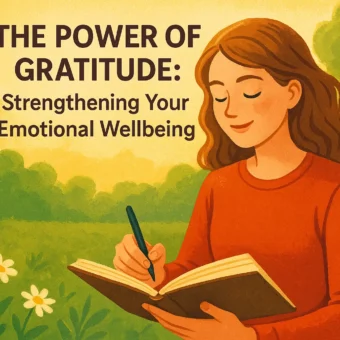Understanding Emotional Self-Care
Emotional self-care is the foundation of a balanced and fulfilling life. It involves nurturing your emotional well-being through intentional actions that help you process feelings, reduce stress, and enhance happiness.
Imagine starting your day with a relaxed mind and ending it with a sense of accomplishment. This is possible when you adopt simple habits that prioritize your emotional health.
Why Emotional Self-Care is Essential for Your Health
Emotional self-care isn’t just about feeling good; it’s about sustaining your overall health. Here’s why it’s crucial:
- Reduces Stress: Regular emotional self-care practices lower cortisol levels, minimizing stress-related health risks like heart disease and high blood pressure.
- Improves Relationships: When you’re emotionally balanced, you’re better equipped to communicate effectively and build stronger connections.
- Boosts Mental Health: Engaging in emotional self-care reduces the risk of anxiety and depression, promoting a positive outlook on life.
Simple Emotional Self-Care Habits to Transform Your Life
Let’s dive into easy, practical habits that can boost your emotional well-being.
Journaling: Your Emotional Release
Start each day by jotting down your thoughts and feelings. This practice helps you:
- Process Emotions: Writing allows you to identify and understand your feelings.
- Clear Mental Clutter: Organizing your thoughts on paper reduces overwhelm.
Step-by-step guide to effective journaling:
- Choose a quiet spot.
- Dedicate 10 minutes daily.
- Write freely without judgment.
Pro Tip: Use prompts like “What made me smile today?” or “What am I grateful for?” to get started.
Practicing Mindfulness: Being Present in the Moment
Mindfulness enhances your connection with the present, helping you:
- Reduce Anxiety: Focus on the now instead of worrying about the future.
- Enhance Mental Clarity: Mindfulness improves decision-making and concentration.
Try this mindfulness exercise:
- Sit comfortably.
- Close your eyes and focus on your breathing.
- Notice the sensations around you for five minutes.
Health Impact: Practicing mindfulness daily can lower cortisol levels and boost serotonin, promoting emotional stability.
Emotional Self-Care Tools and Resources
Sometimes, adopting new habits requires additional support. Here are tools to help:
- Apps: Use apps like Calm, Headspace, or Journify for guided meditation and journaling.
- Books: Read titles like The Happiness Trap by Russ Harris for actionable self-care strategies.
- Online Communities: Join emotional wellness forums to share experiences and gain motivation.
Comparison Table: Journaling vs. Meditation
| Habit | Benefits | Time Required |
| Journaling | Organizes thoughts, reduces overwhelm | 10 minutes |
| Meditation | Enhances focus, reduces anxiety | 5-10 minutes |
Pros and Cons of Emotional Self-Care Practices
| Practice | Pros | Cons |
| Journaling | Enhances self-awareness | Time commitment |
| Mindfulness | Immediate stress relief | Requires consistent practice |
| Social Connection | Strengthens relationships | Can be emotionally draining |
Building a Sustainable Emotional Self-Care Routine
Consistency is key to emotional self-care. Follow these tips to build a routine that sticks:
Step 1: Start Small
- Begin with one habit, such as journaling, and gradually add more.
Step 2: Schedule Self-Care Time
- Set aside 15-30 minutes daily for emotional self-care practices.
Step 3: Monitor Progress
- Reflect on your emotional state weekly to identify improvements or adjustments.
Friendly Reminder: Self-care isn’t selfish; it’s a necessary investment in your well-being.
Effects of Neglecting Emotional Self-Care
Ignoring emotional self-care can lead to:
- Chronic Stress: Elevated cortisol levels harm physical and mental health.
- Relationship Strain: Poor emotional regulation affects personal connections.
- Mental Fatigue: Neglecting self-care leads to burnout and decreased productivity.
Final Thoughts on Emotional Self-Care
Emotional self-care is a journey of small, consistent actions that lead to significant transformations. Whether it’s journaling, mindfulness, or connecting with loved ones, every step you take brings you closer to a happier, healthier you.
Disclaimer: This blog is for informational purposes only and should not replace professional medical advice. Consult a healthcare provider for personalized guidance on emotional well-being.







